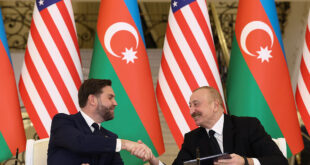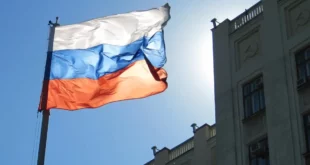 There are two worst rated territories: Tibet (under Chinese jurisdiction) and Chechnya, where an indigenous Islamic population is engaged in a brutal guerrilla war for independence from Russia.” [Chechnya got the lowermost rating both in Political Rights and Civil Liberties.]THE RUSSIAN NEIGHBORHOOD: FROM BAD TO WORSE
There are two worst rated territories: Tibet (under Chinese jurisdiction) and Chechnya, where an indigenous Islamic population is engaged in a brutal guerrilla war for independence from Russia.” [Chechnya got the lowermost rating both in Political Rights and Civil Liberties.]THE RUSSIAN NEIGHBORHOOD: FROM BAD TO WORSE
No event more vividly illustrates the problems faced by the non-Baltic countries of the former Soviet Union than Russia’s parliamentary elections. In certain superficial ways, the Russian vote resembled elections in established democracies. Several parties put forward candidates for parliamentary seats, held rallies, and made promises to the electorate, and the press eagerly covered the pageantry surrounding the campaign. But as numerous independent monitoring organizations testified, the elections were an illusory spectacle, as parties and candidates who challenged the policies of President Vladimir Putin were eliminated through bureaucratic manipulation. The press-largely controlled by the state or supporters of the president-devoted overwhelming coverage to Putin and his allies, and measures were implemented to keep the opposition impotent, fragmented, or tame.
Russia exerts influence in the former Soviet Union by using its abundant oil and gas resources to reward politically friendly, autocratic countries and pressure states that are not willing to bow to the Kremlin. In Central Asia, the Russian regime has provided political, moral, and material support to the authoritarians who dominate the region. For example, Russia has enhanced its relationship with Uzbek President Islam Karimov, whose security forces are believed to have massacred some 500 protesters in the eastern city of Andijan in May 2005. Russia has been seeking a de facto monopoly on gas exports from Uzbekistan with the understanding that Moscow would help the Karimov regime in rebuffing domestic protests and criticism from the West. In Kyrgyzstan, Russia has used its influence to obstruct political reforms in the wake of the country’s 2005 political opening, which was unique in Central Asia.
Three of the region’s countries-Belarus, Uzbekistan, and Turkmenistan- have consistently ranked among the world’s most repressive societies. In Uzbekistan, Karimov was reelected for a third term in 2007 with well over 90 percent of the vote, in blatant violation of a constitutional two-term limit.
Russia, Azerbaijan, and Kazakhstan-all countries with entrenched authoritarian leaderships and growing energy wealth-registered declines in 2007. Perhaps more disturbing was the substantial reversal suffered by Georgia, a country that had made important strides toward democracy since its 2003 Rose Revolution. Georgia saw both its political rights and its civil liberties ratings decline due to the imposition of a state of emergency following antigovernment demonstrations in November, restrictions on press freedom, and a systematic campaign to marginalize the political opposition. Kyrgyzstan registered a decline in political rights after independent monitoring organizations pointed to serious flaws in the 2007 parliamentary elections, which resulted in a near clean sweep for the ruling coalition.
In contrast to the generally poor state of freedom in the former Soviet Union, the countries of the Baltic region, Central Europe, and, with a few exceptions, the Balkans, continued to move ahead with the process of democratic consolidation. For 2007, Latvia registered a slight decline due to a series of corruption scandals that implicated high-ranking officials. Poland showed a modest gain because of improvements in press freedom and freedom of association. Bosnia and Herzegovina experienced a decline in political rights due to a greater degree of intervention by the High Representative appointed by the international commission that guides the peace process.
Even as the countries of the former Soviet Union were negatively influenced by the Russian model, the countries of Central and Eastern Europe benefited from proximity to Western Europe and, for most, membership in the European Union. EU membership has been instrumental in persuading them to stem corruption, ensure a level political playing field, limit discrimination against minorities, and adopt responsible economic policies. While countries like Hungary, Poland, and Romania have experienced periods of political upheaval and discontent over living standards, corruption, and other matters, their political systems have displayed a resilience that is notably missing in formerly communist countries that lack such close ties to the established democracies of Western Europe.
 Eurasia Press & News
Eurasia Press & News



